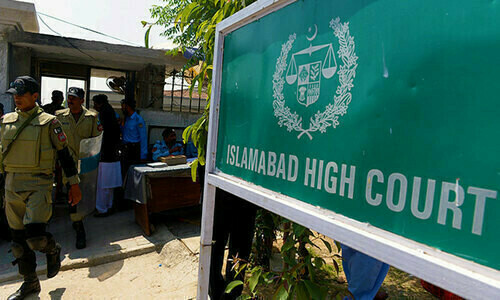THE government has proposed a raft of incentives in the FY2024 budget to boost the productivity of the agriculture sector and encourage investments in the agro industry. Among the steps announced by Finance Minister Ishaq Dar on Friday is a significantly large increase in loans for farmers — from Rs1.8tr Rs2.2tr — the allocation of Rs50bn to shift 50,000 tube wells to solar power, the withdrawal of duties on seed import, and duty exemption on the import of combine harvesters. The budget also proposes the removal of duties on rice planters, seeders and dryers, in addition to setting aside Rs16bn for concessional loans and tax relief for agro-based industry. On the face of it, all these measures appear to be populist, aimed at pleasing a large electorate associated with agriculture. However, it remains unclear — and doubtful — whether these actions will have a meaningful impact on the lives of farmers, especially the smallholders. Nor is it clear if they are effective enough to address long-standing issues such as the rising cost of inputs, climate change, water shortages, etc, that are pulling down the farm sector and hampering value addition in a part of the economy on which depend, directly or indirectly, two-thirds of the population, for their livelihoods.
Agriculture is a large and diverse segment of the economy which remains criminally neglected, poorly organised and highly inefficient. Its problems are too complex to be dealt with the incentives announced in the budget. With the country trying to cope with a level of hunger that is described as serious by the Global Hunger Index, and having suffered massive damage to its farmlands last year due to climate change-induced floods, a complete rethink of obsolete agricultural policies that focus on fixing the prices of crops and doling out subsidies is needed. Studies have shown that the current policies protect the interests of big landlords, speculators and middlemen. Policies and fiscal interventions on behalf of a small group of large growers are the main reasons for growing rural poverty, low crop value addition, and rising food insecurity. No policy initiative or incentive can turn the agriculture sector around if it doesn’t put the smallholder farmers at its centre.
This means that the government must invest heavily in agriculture research, set up initiatives to encourage the formation of cooperatives and adoption of technologies, and mitigate the impact of climate change. It should also design programmes to enhance the small growers’ access to cheaper formal credit, give them crop insurance, and link them to the markets to eliminate the role of the middleman, thus raising their incomes. A well-developed agriculture sector can contribute a lot to economic development and alleviate poverty. For this to happen, the policymakers need to clean up the mess they have made in this important sector.
Published in Dawn, June 12th, 2023











































Dear visitor, the comments section is undergoing an overhaul and will return soon.